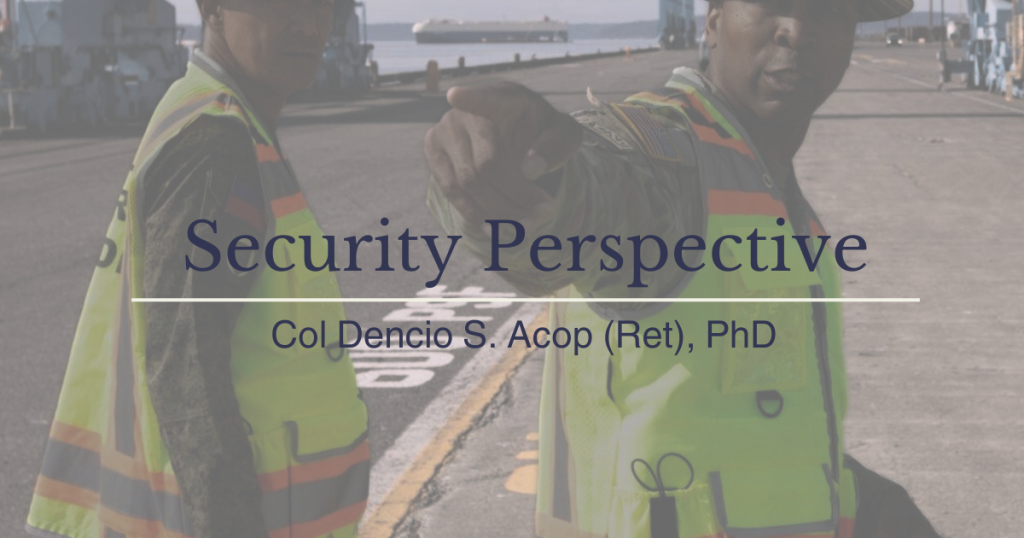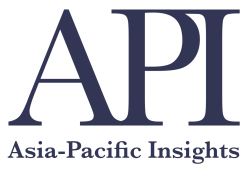The Post-Soviet Space:
Parallelisms Between Putin and Hitler

By Col Dencio S. Acop (Ret), PhD, CPP | Date 05-15-2024
BOSTON, MASSACHUSETTS — In the aftermath of Russia’s invasion of Ukraine, three points of analysis will be raised.
One, Russia’s unilateral act is a retaliation for what it perceives to be the global leaders’ unwillingness to treat Russia as an equal in the determination of world affairs especially in its sphere of influence.
Two, Russia wants former Soviet states and territories along its borders with NATO.
Three, deep-seated ideology lies at the core of Russian insistence upon its own way of doing things and concurrent animosity towards the West. Incidentally enough, these post-Soviet conditions find resonance in the post-Versailles Treaty justifications that motivated Hitler and Nazi Germany in the run-up to World War II.
On the first point, Russian leader Vladimir Putin has always lamented that the US-led West has not treated Russia as an equal in global affairs since the 1991 collapse of the Soviet Union.
While there have been at least three re-sets with the United States since Putin came to power in 2000, none of these has endured.
Putin cites the non-dissolution of the North Atlantic Treaty Organization after the Soviet collapse and Russia’s exclusion from it when it was sustained as the West’s continuing to see Russia as an enemy.
NATO, after all, was created in 1949 to halt Soviet expansion westwards.
The US and most of Europe feared that the impact of the post-World War II Yalta Agreement was long-lasting.
In fact, most of the Central Asia states impacted by that agreement were inclined to join NATO to avoid a repeat of the forty years that consigned them to Soviet domination.
When Russia eventually annexed Crimea in early 2014, US President Barack Obama was so incensed that he called Russia ‘a regional power that is threatening some of its immediate neighbors, not out of strength but out of weakness’.
While Putin of course got offended, the remarks were actually truer than not. The US economy is 14 times the size of Russia’s economy. But Putin undoubtedly argues that Russia is not just a regional but a world leader in terms of being a nuclear power ‘equal’ to the United States.
Because of its aggressive role in World War I, Germany was severely punished and it felt humiliated by the harsh punitive measures it had to deal with. It lost 12-13% of its land and population to other nations like France and Poland; surrendered its colonies in Africa, Asia, and the Pacific; reduced the size of its military; paid hefty war reparations; and accepted guilt for the war.
The land Germany lost made up some 48% of its iron and coal productions and limited the German economy.
The humiliation felt by many Germans, calling for remilitarization and expansion in that post-war period, gave rise to radical right-wingers like Adolf Hitler who himself fought in the war.
Unknown to the rest of the world, the lull between World Wars I and II became the period when the Hitler-led Nazi Party not only meant to regain lost German pride but to subjugate the world to regain it.
Two, Russia wants former Soviet states and territories along its borders with NATO.
The Americans and Western Europeans may be partly responsible for Russian expansionism in the post-Soviet space instead of preventing it.
It is now commonly known that Putin invaded Ukraine before Ukraine could become a member of NATO.
Putin did everything he could to put in place a Russian puppet leader in this country he calls an organic part of Russia.
When he could not control Volodymyr Zelenskyy, who was determined to join NATO, Putin had Ukraine invaded in 2022.
It may not be apparent to some, but one of the key reasons why Putin invaded Ukraine was to cement his reelection. In 2024, Putin is only a year short of how long Josef Stalin ruled the Soviet Republic.
By tinkering with the constitution, 4th term Putin could have it rewritten for him to last two more terms until 2036 or even a lifetime.
But he miscalculated the defense posted by the Ukrainians. The Ukrainian Army destroyed the runway in Kyiv before the main Russian invading force could land to take out the enemy leadership. Instead of a 3-day blitzkrieg attack, Putin got a war that is still ongoing as of mid-2024.
Russia also made Soviet-reminiscent territories out of Moldova (1992); Abkhazia and South Ossetia in Georgia (2008); Crimea, parts of Luhansk Oblast and Donetsk Oblast (2014); and parts of Zaporizhzhia Oblast and Kherson Oblast (2022) along its borders to the west and southwest.
Putin’s quest for territory finds justification in both intangible and tangible enclaves.
Besides fighting for the pride of Russia as a great nation, Putin also needs to create and sustain a viable economy if his country is to avoid going the way of the Soviet collapse a second time. Russia’s economic health is challenged in three ways.
First, the Russian economy is mostly raw materials oil, and gas. Its main export manufactures are weapons although Putin had been trying to add the nuclear power market to the Russian portfolio.
Second, while the Russian economy is relatively small, much of the Russian ruble goes into defense production and maintenance including its nuclear arsenal.
And third, much of the public coffer is lost to corruption. Oligarchs loyal to the sitting ruler have been running Russia’s economy. Putin himself is alleged to be the richest man in Russia with a staggering $200 billion stash alluded to. To make up for resources lacking in the Motherland, Russia has always been imperialistic.
Its now closest ally China has much in common in this regard. In fact, before invading Ukraine, Putin intimated to Chinese leader Xi Jinping how both have ‘unlimited support’ between them.
China is claiming almost the entire South China Sea as part of its territory. Also, in hindsight, Hitler did invade Poland (1939); Denmark, Norway, Belgium, the Netherlands, Luxembourg, and France all in 1940; and Yugoslavia and Greece in 1941.
Finally, deep-seated ideology lies at the core of Russian insistence upon its own way of doing things and concurrent animosity towards the West.
In her excellent book Putin’s World, Angela Stent wrote the following: Attending his first Munich Security Conference in 2007, “Putin began by criticizing the idea of unipolarity: ‘It is a world in which there is one master, one sovereign. And at the end of the day, this is pernicious not only for all those within this system but also for the sovereign itself because it destroys itself from within. And this certainly has nothing in common with democracy … Incidentally, in Russia, we are constantly being taught about democracy. But for some reason, those who teach us do not want to learn themselves.’ Putin then went on to lambast the United States for its aggressive and destabilizing foreign policy and concluded with a plea for multipolarity and a greater role for the United Nations.”
Putin’s impassioned speech was a far cry from that of Nikita Khrushchev when he came to the US decades before, where he unabashedly exclaimed how great the country was that he saw.
Under Putin, the world has seen a Russia that is arguably unhinged. While Putin has filled in where the US, especially under Trump, withdrew, the fact remains that the sphere of influence impacted by the Kremlin has not effectively advanced except only when those national interests benefited Russia primarily.
And Russia, unlike China, can only promise so much in terms of support. While China’s economy is arguably the largest in the world, Russia’s is hardly a dent relative to it. The ideological reality of Russia becomes evident in the words of Stent:
“While Putin has certainly fashioned a world that bears his personal imprint, what he represents are centuries of Russian traditions – belief in a strong leader and a powerful state; a conviction that Russia, as a great power, has a right to a sphere of influence in its backyard; suspicion of and antipathy toward the West and its individualistic and liberal values; and a belief in the individuality and superiority of Russian civilization.
But, if history is any guide, Russia will remain a global competitor with its unique values and worldview, one that will continue to challenge the West and find a positive reception in much of the Rest.”
The Rest Stent refers to countries that now tend to support the non-liberal order.
These are countries that share Russia’s authoritarian tendencies, like China, North Korea, Iran, Cuba, and the rest. Adolf Hitler’s Germany embraced Fascism following World War I, allowing Germany’s imperialism that culminate in World War II. Its allies like Benito Mussolini’s Italy and Emperor Hirohito’s Japan did the same.
Fascism may sound different but it actually has common themes with other leadership governance systems that exude centralist tendencies more than marginal concerns.
These themes include authoritarianism, nationalism, elitism, militarism, anti-egalitarianism, totalitarianism, and perception of decadence in the other but not itself.
The future also depends on who gets to lead the next world’s two nuclear powers.
The end of 2024 will have seen whether it is still Joseph Biden who leads the United States or is it also still Vladimir Putin who leads the Russian Federation. Until then, it seems impossible to assess where global security is headed. But, whomever they may be, today’s world still makes it improbable to claim that we might know the future because of our knowledge of the past.
Tags: Security
